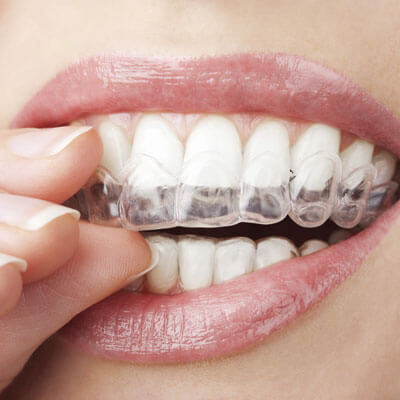For years, traditional braces were the only way to go when it came to crooked teeth. Now, the options are seemingly endless. You have the choice between metal or ceramic braces and translucent braces.
 While traditional braces are still widely used, “invisible braces” have been sparking interest and raising many questions in patients of all ages. What are the differences between the two styles of braces? Which option is better for me? Green Apple Dental Clinic offers both reliable options, including ClearCorrect aligners. We are here to help you choose the most appropriate course of care for your smile needs.
While traditional braces are still widely used, “invisible braces” have been sparking interest and raising many questions in patients of all ages. What are the differences between the two styles of braces? Which option is better for me? Green Apple Dental Clinic offers both reliable options, including ClearCorrect aligners. We are here to help you choose the most appropriate course of care for your smile needs.
Traditional Braces vs. ClearCorrect Aligners
The Pros and Cons of Traditional Braces
• Pros – Affordability and results. Traditional braces tend to be much less expensive and often produce better outcomes for patients with severely crooked or crowded teeth.
• Cons – Visibility and comfort. Fixed braces can be easily seen and sometimes cause small abrasions in the mouth.
The Pros and Cons of ClearCorrect Aligners
• Pros – Visibility and comfort. ClearCorrect aligners are much more discrete and tend to provide a comfortable fit.
• Cons – Affordability and results. ClearCorrect aligners are often on the pricier side and have been known to achieve good, yet less-dramatic change.
The Choice Is Yours
How you achieve your ideal smile is ultimately up to you. Although traditional braces and ClearCorrect aligners have many differences, they are both viable options for straightening your smile. If your teeth are in significant need of straightening and appear extremely crowded, traditional braces might be the answer for you. If you would feel more confident with an unnoticeable teeth alignment option, ClearCorrect may prove better for your lifestyle.
Please do not hesitate to contact our practice with further questions. We are glad to provide clarification and help you determine your compatibility with each braces option. Contact our practice today!
* Any surgical or invasive procedure carries risks. Before proceeding, you should seek a second opinion from an appropriately qualified health practitioner.
